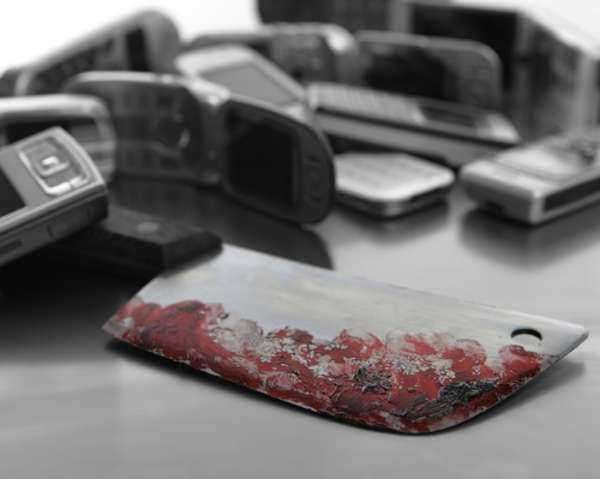
What is Homicide?
Homicide is classified as the act of causing the death of another. It is a criminal violation that, upon conviction, can require extensive amounts of jail time and even the death penalty. There are commonly 4 different categories of homicide that are followed by law and they have varying degrees of mens rea associated with them. These categories are: murder, felony murder, voluntary manslaughter and involuntary manslaughter.
Murder is the unlawful killing of another human being with the intent to cause injury or death. The mens rea associated with murder include: intent to kill, intent to cause serious bodily harm and a reckless indifference to an unjustifiably high risk to human life.
Felony murder is defined as the killing of an other through the commission of a specific type of felony. These “enumerated” felonies vary by state. If an individual is involved in a crime but was not directly involved in the killing of another they may still be prosecuted for the felony murder of an accomplice in that crime.
Manslaughter is broken up into voluntary and involuntary manslaughter. Voluntary manslaughter is killing that would qualify for murder if not for the presence of a provocation factor. This is often known as the “heat of passion” and exists when someone develops an uncontrollable urge due to provocation by the victim that the lose their ability to rationalize. In voluntary manslaughter cases the defendant must prove that they were under the heat of passion and that there was not sufficient time to “cool off” and that they in fact did not cool off. Voluntary manslaughter is not pre-meditated and has a lower penalty associated with it than murder.
Involuntary manslaughter occurs when the defendant acted with “criminal negligence” and did not intend for the killing of the victim. An example of this would be if an individual is pretending to fire a gun at another after he had removed all the bullets but, unkown to him, someone else put a bullet inside and it results in the killing of another. The defendant did not intend to harm the other but, through his criminal negligence, the killing was committed.
Why do I need a homicide lawyer?
If you are being investigated for any form of homicide or you have already been arrested and charged it is important to retain a homicide lawyer immediately. Under the 5th Amendment to the United States Constitution you are permitted to have an attorney present upon your detention for any crime. You should not speak to anyone before consulting a homicide lawyer. Anything you say can and will be used against you in a legal proceeding. A homicide lawyer will communicate with law enforcement. They know what information to give and what information may be damning to your case.
Every individual charged with a criminal offense has the right to a court appointed lawyer. Where it is inexpensive, and your legal right, to have one it is also not recommended. Court appointed attorneys are usually inadequate to deal with homicide defense cases and often cannot devote the time and effort that you may need.
What will a homicide lawyer do for me?
First, homicide lawyers will arrange for you to get out of jail. In homicide situations the defendant will often be required to post bail in order to be released from police custody during the pending of the trial. A homicide trial can take years to go to court and without posting bail an individual will have to remain incarcerated even before they have been convicted of any crime. A homicide lawyer can be helpful in convincing a court to reduce bail and arrange for bail to be paid for your release.
Homicide Lawyers will conduct investigations, review evidence, coroner’s reports and conduct depositions in order to defend you in the homicide action. One of the most important things a homicide lawyer can do is mitigate charges. Many times there is not question whether the defendant killed another. The issue in the case becomes what class of homicide is the defendant guilty of. Homicide Lawyers will find evidence and review the circumstances so, at the very least, a defendant will ultimately be found guilty of involuntary manslaughter rather than murder.
Where do I find a homicide lawyer?
There are very few attorneys who practice solely under the title of “homicide lawyer.” Usually homicide defense is only one of many aspects of criminal defense that the homicide lawyer will devote his practice to. The easiest way to find a homicide lawyer is through an internet search. You can also ask for referrals from a number of referral organizations in your jurisdiction, your local bar association will normally have a directory and referral services to help you retain homicide lawyers.
What questions do I ask a homicide lawyer?
Because this is one of the most important, if not the most important, event in your life it is necessary to do your research when looking for a homicide lawyer. Often times you will not be prepared research homicide lawyers. In these cases, when you are arrested, it is necessary to have someone else retain homicide lawyers for you. If you do have the opportunity to investigate the matter yourself then you should have specific questions prepared for your initial consultations. These include:
■ Where did you go to law school?
■ How much litigation experience do you have?
■ How many homicide trials do you handle per year?
■ What has been the outcome of those cases?
■ Do you have any special certifications in criminal defense?
■ How long have you been practicing in criminal defense?
■ Does your firm solely practice criminal defense?
■ Will you be working personally on this case?
■ How often will I hear from you?
■ What are your fees?
■ What do you see as the outcome of this case?
■ Will I have access to your staff?








